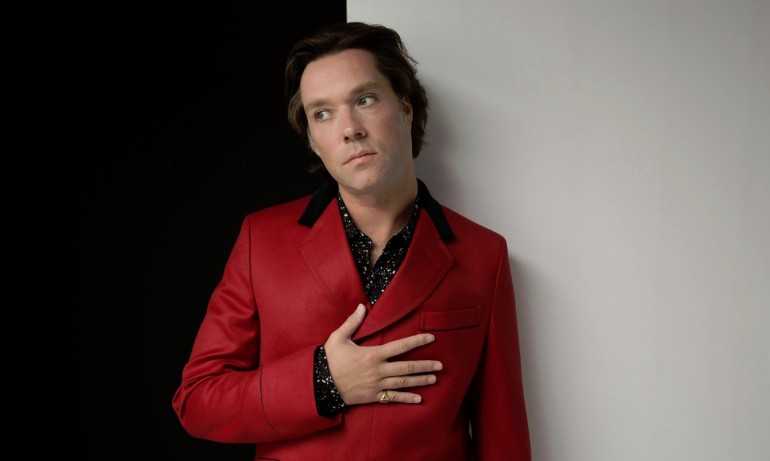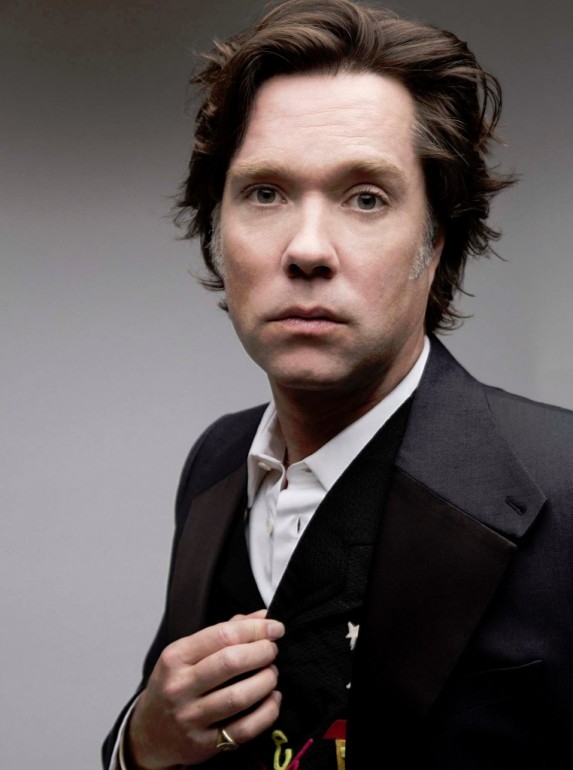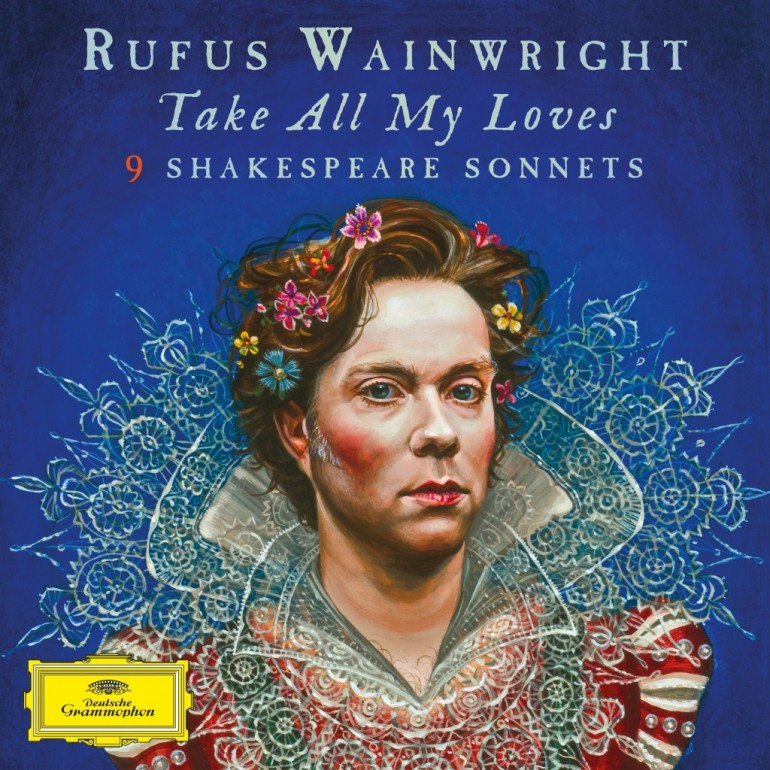
Photo by Matthew Welch
Shakespeare’s death 400 years ago is commemorated with a wide range of artistic interpretations of his work this year. RUFUS WAINWRIGHT is among those, who have dedicated themselves to the English master’s vast output in a very unique way. His new album Take All My Loves – 9 Shakespeare Sonnets explores this particular literary form within a sonically ambitious realm that includes guest appearances by a large number of creative forces like fellow musicians FLORENCE WELCH, MARTHA WAINWRIGHT or singer ANNA PROHASKA as well as actors like HELENA BONHAM CARTER, WILLIAM SHATNER and CARRIE FISHER.
With an impressive cast like this, the artist sets out to explore the sonnets’ soul in a way that defies the common approach. The result happily dives as much into classical as well as pop music – all accompanied by traditional recitations and, of course, a sense of history. For a few hours, the American-Canadian singer brought some of that magic to Berlin lately, performing a short set on the grand piano at SoHo House before talking to the press. Despite feeling a little loopy as he said, we got to meet a humorous and focused RUFUS WAINWRIGHT, who shared his love for Shakespeare with us looking all elegant on a posh, velvet sofa.
Let’s be honest, despite Shakespeare’s reputation, most of us probably read his famous sonnets at school to some degree, but didn’t give them much further notice. Rufus, however, has been drawn to the writer’s skillful expressions from a very young age up until today as he admits:
‘I started with the sonnets when I was a teenager. My mother was a big fan so I read them. You can really take one of them, read it over and over again and you will always discover something new. I think the sonnets are actually a fabulous way for people to really discover Shakespeare, especially young people. Reading is a sonnet is much easier than reading a play.’
Even 400 years after the poet’s passing, his words continue to captivate WAINWRIGHT in a way that is sad and comforting at the same time: ‘Right now, in terms of transgender issues, feminism, gay rights – Shakespeare really is the master of examining those forms. You look at the plays and sonnets and realize nothing has really changed in 400 years. It’s sad in a way, but I also find it reassuring because I’m generally a positive person. Those works still speak to me and still speak to the world. I’m not saying that I’ll ever write something that lasts this long, but certainly you’re not writing into a vacuum. This idea of time and death doesn’t necessarily exist as we are brought up to think of it.’
‘Shakespeare’s work is timeless, especially when you hit 42. You start to look at timeless things in a much more kind of sympathetic manner.’
Interpreting a classic like that is a big task for any artist who attempts to do Shakespeare justice. Thankfully. RUFUS WAINWRIGHT didn’t shy away from the challenge that not only requires a lot of passion, but certainly an understanding beyond the common textbook. Having both in his veins, he faced the making of Take All My Loves – 9 Shakespeare Sonnets being all calm and confident at the same time:
‘I’m a sucker for the classics. I do believe, instinctually, that with great literature, art and music in general, you will gain something by experiencing and by diving into it. I wasn’t afraid with the sonnets because I knew in the end I would learn a thing or two about how to write a poem, for example.’

Photo by Matthew Welch
Already having worked on Shakespeare’s sonnets with Robert Wilson and the Berliner Ensemble in the past, the idea of adapting these sonnets originated in the previous collaboration which Rufus describes as an intellectual, but most of all instinctual experience: ‘He just really cared about the sound and the immediate feeling. That was very liberating. That is why we all love Robert Wilson so much. He is able to take all these classic works and just interpret them in a way that is intellectual in a sense, but it is very much about the instinct. That’s what is most important about art in general. It’s supposed to be instinctual.’
As much as instinct was a big part of this project, there was a great deal of preparation going on for it, too. Especially when it comes to the other artists being involved. Whether singers or actors, they all had to deal with the intensity and vocally challenging songs Wainwright had come up with: ‘The music that I’ve written has always been very challenging. Probably because of my voice. I have a very wide range and so I write for my voice and it’s intense. It’s not for everybody. The Berlin Ensemble’s style of singing is like the reverse of what I do. I have to admit, I did feel that I would like to sing these songs. I’m a big fan of big voices. I felt like it was important to have big singers on it as well. The Berlin Ensemble has some very good singers, but they are more about the theatre.’
‘I felt it was necessary to express the material vocally in terms of how I see it – pretty over the top!’

But not antique in any way as Rufus declares with a sweet sentiment in his voice: ‘In English, what is incredible about the sonnets and the plays is that you see one of them and it might seem very archaic, but all of a sudden there is this expression that is so current and modern – like ‘I am what I am’, ‘All the glitter isn’t gold’ – things that we still use and it’s incredibly comforting because it breaks down time. It breaks down the barriers of life and death and these figures are imbued with the soul. All the characters, actors have played over hundreds of years. What’s great about art in general is that it becomes heavenly.’
With his new album Take All My Loves – 9 Shakespeare Sonnets, RUFUS WAINWRIGHT celebrates Shakespeare’s work in a way that allows the listener to fall in love with the poet’s words all over again as much as with the singer’s sonic vision.
—



